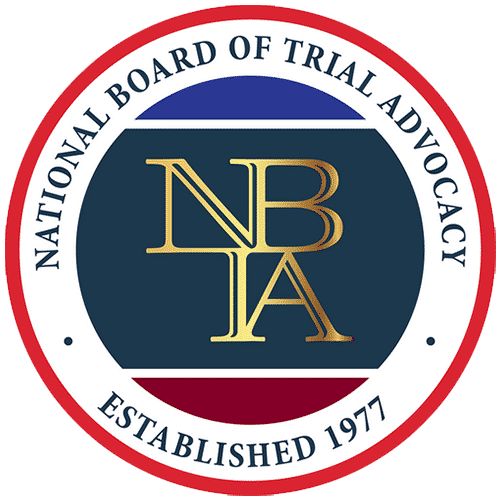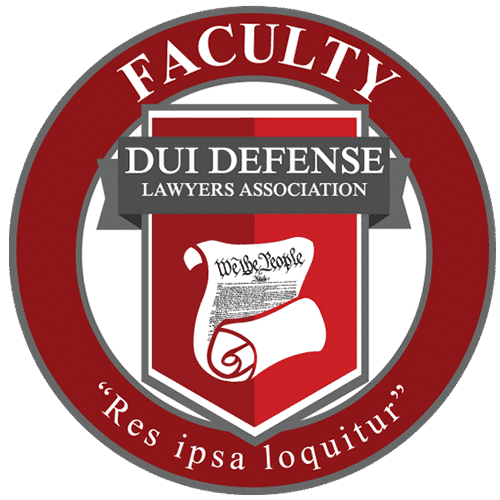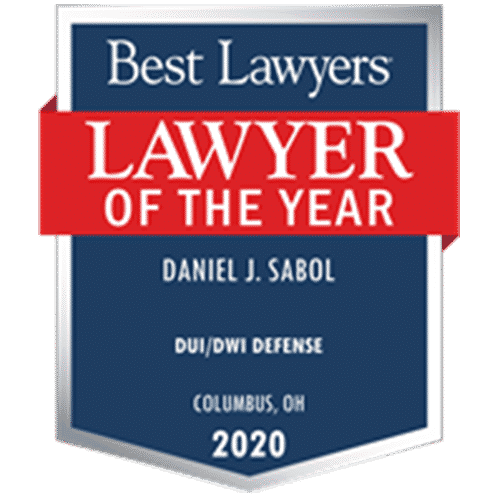Columbus Criminal Mischief Lawyer
If you were arrested or ticketed for an alleged criminal mischief offense in Columbus, Westerville, Dublin, or another community in Franklin County, Ohio, you need to take the criminal charges seriously right from the start. Do not wait to contact Sabol | Mallory today.
Our firm understands the best ways to fight these kinds of charges and will be able to assist you in achieving the most favorable possible outcome to your case. Call (614) 300-5088 or contact us online to have us review your case and go over what could be done during a free consultation.
Criminal Mischief Charges in Ohio
Under Ohio Revised Code §2909.07(A), no person can:
● Without privilege to do so, knowingly move, deface, damage, destroy, or otherwise improperly tamper with the property of another, or one's own residential real property with the purpose to decrease the value of or enjoyment of the residential real property, if the residential real property is subject to a mortgage and the person has been served with a summons and complaint in a pending residential mortgage loan foreclosure action relating to that real property (as used in this division, "pending" includes the time between judgment entry and confirmation of sale);
● With purpose to interfere with the use or enjoyment of property of another, employ a tear gas device, stink bomb, smoke generator, or other device releasing a substance that is harmful or offensive to persons exposed or that tends to cause public alarm;
● Without privilege to do so, knowingly move, deface, damage, destroy, or otherwise improperly tamper with a bench mark, triangulation station, boundary marker, or other survey station, monument, or marker;
● Without privilege to do so, knowingly move, deface, damage, destroy, or otherwise improperly tamper with any safety device, the property of another, or the property of the offender when required or placed for the safety of others, so as to destroy or diminish its effectiveness or availability for its intended purpose;
● With purpose to interfere with the use or enjoyment of the property of another, set a fire on the land of another or place personal property that has been set on fire on the land of another, which fire or personal property is outside and apart from any building, other structure, or personal property that is on that land;
● Without privilege to do so, and with intent to impair the functioning of any computer, computer system, computer network, computer software, or computer program, knowingly do any of the following: In any manner or by any means, including, but not limited to, computer hacking, alter, damage, destroy, or modify a computer, computer system, computer network, computer software, or computer program or data contained in a computer, computer system, computer network, computer software, or computer program; Introduce a computer contaminant into a computer, computer system, computer network, computer software, or computer program.
Ohio Revised Code § 2909.07(B) establishes that "safety device" is defined as any fire extinguisher, fire hose, or fire axe, or any fire escape, emergency exit, or emergency escape equipment, or any life line, life-saving ring, life preserver, or life boat or raft, or any alarm, light, flare, signal, sign, or notice intended to warn of danger or emergency, or intended for other safety purposes, or any guard railing or safety barricade, or any traffic sign or signal, or any railroad grade crossing sign, signal, or gate, or any first aid or survival equipment, or any other device, apparatus, or equipment intended for protecting or preserving the safety of persons or property.
Other important terms relating to criminal mischief offenses are defined as follows:
● Computer, Ohio Revised Code § 2913.01(M) — An electronic device that performs logical, arithmetic, and memory functions by the manipulation of electronic or magnetic impulses. "Computer" includes, but is not limited to, all input, output, processing, storage, computer program, or communication facilities that are connected, or related, in a computer system or network to an electronic device of that nature.
● Computer Contaminant, Ohio Revised Code § 2909.01(F) — A computer program that is designed to modify, damage, destroy, disable, deny or degrade access to, allow unauthorized access to, functionally impair, record, or transmit information within a computer, computer system, or computer network without the express or implied consent of the owner or other person authorized to give consent and that is of a type or kind described in divisions (F)(1) to (4) of this section or of a type or kind similar to a type or kind described in divisions (F)(1) to (4) of this section: A group of computer programs commonly known as "viruses" and "worms" that are self-replicating or self-propagating and that are designed to contaminate other computer programs, compromise computer security, consume computer resources, modify, destroy, record, or transmit data, or disrupt the normal operation of the computer, computer system, or computer network; A group of computer programs commonly known as "Trojans" or "Trojan horses" that are not self-replicating or self-propagating and that are designed to compromise computer security, consume computer resources, modify, destroy, record, or transmit data, or disrupt the normal operation of the computer, computer system, or computer network; A group of computer programs commonly known as "zombies" that are designed to use a computer without the knowledge and consent of the owner, or other person authorized to give consent, and that are designed to send large quantities of data to a targeted computer network for the purpose of degrading the targeted computer's or network's performance, or denying access through the network to the targeted computer or network, resulting in what is commonly known as "Denial of Service" or "Distributed Denial of Service" attacks; A group of computer programs commonly know as "trap doors," "back doors," or "root kits" that are designed to bypass standard authentication software and that are designed to allow access to or use of a computer without the knowledge or consent of the owner, or other person authorized to give consent.
● Computer Network, Ohio Revised Code § 2913.01(O) — A set of related and remotely connected computers and communication facilities that includes more than one computer system that has the capability to transmit among the connected computers and communication facilities through the use of computer facilities.
● Computer Program, Ohio Revised Code § 2913.01(P) — An ordered set of data representing coded instructions or statements that, when executed by a computer, cause the computer to process data.
● Computer Services, Ohio Revised Code § 2913.01(L) — Includes, but is not limited to, the use of a computer system, computer network, computer program, data that is prepared for computer use, or data that is contained within a computer system or computer network.
● Computer Software, Ohio Revised Code § 2913.01(Q) — Computer programs, procedures, and other documentation associated with the operation of a computer system.
● Computer System, Ohio Revised Code § 2913.01(N) — A computer and related devices, whether connected or unconnected, including, but not limited to, data input, output, and storage devices, data communications links, and computer programs and data that make the system capable of performing specified special purpose data processing tasks.
● Data, Ohio Revised Code § 2913.01(R) — A representation of information, knowledge, facts, concepts, or instructions that are being or have been prepared in a formalized manner and that are intended for use in a computer, computer system, or computer network. For purposes of Ohio Revised Code § 2913.47, "data" has the additional meaning set forth in division (A) of that section, which additionally includes any other representation of information, knowledge, facts, concepts, or instructions that are being or have been prepared in a formalized manner.
● Telecommunication, Ohio Revised Code § 2913.01(X) — The origination, emission, dissemination, transmission, or reception of data, images, signals, sounds, or other intelligence or equivalence of intelligence of any nature over any communications system by any method, including, but not limited to, a fiber optic, electronic, magnetic, optical, digital, or analog method.
● Telecommunications Device, Ohio Revised Code § 2913.01(Y) — Any instrument, equipment, machine, or other device that facilitates telecommunication, including, but not limited to, a computer, computer network, computer chip, computer circuit, scanner, telephone, cellular telephone, pager, personal communications device, transponder, receiver, radio, modem, or device that enables the use of a modem.
Columbus Criminal Mischief Penalties
The criminal process in Ohio will require an examination of what section of state law was violated in a criminal mischief offense. Under Ohio Revised Code § 2909.07(C)(2), criminal mischief committed in violation of Ohio Revised Code § 2909.07(A)(1), (2), (3), (4), or (5) is a third-degree misdemeanor. A conviction is punishable by up to 60 days in jail and/or a fine of up to $500.
If a violation of Ohio Revised Code § 2909.07(A)(1), (2), (3), (4), or (5) creates a risk of physical harm to any person, criminal mischief is a first-degree misdemeanor. A conviction is punishable by up to 180 days in jail and/or a fine of up to $1,000.
If the property involved in the violation of Ohio Revised Code § 2909.07(A)(1), (2), (3), (4), or (5) is an aircraft, an aircraft engine, propeller, appliance, spare part, fuel, lubricant, hydraulic fluid, any other equipment, implement, or material used or intended to be used in the operation of an aircraft, or any cargo carried or intended to be carried in an aircraft, criminal mischief is one of the following:
● If the violation creates a risk of physical harm to any person, except as otherwise provided in Ohio Revised Code § 2909.07(C)(2)(b), criminal mischief is a fifth-degree felony. A conviction is punishable by up to 12 months in prison and/or a fine of up to $2,500.
● If the violation creates a substantial risk of physical harm to any person or if the property involved in a violation is an occupied aircraft, criminal mischief is a fourth-degree felony. A conviction is punishable by up to 18 months in prison and/or a fine of up to $5,000.
Under Ohio Revised Code § 2909.07(C)(3), criminal mischief committed in violation of Ohio Revised Code § 2909.07(A)(6) is a first-degree misdemeanor. Except as otherwise provided, if the value of the computer, computer system, computer network, computer software, computer program, or data involved in the violation of Ohio Revised Code § 2909.07(A)(6) or the loss to the victim resulting from the violation is $1,000 or more and less than $10,000, or if the computer, computer system, computer network, computer software, computer program, or data involved in the violation of Ohio Revised Code § 2909.07(A)(6) is used or intended to be used in the operation of an aircraft and the violation creates a risk of physical harm to any person, criminal mischief committed in violation of Ohio Revised Code § 2909.07(A)(6) is a fifth-degree felony. If the value of the computer, computer system, computer network, computer software, computer program, or data involved in the violation of Ohio Revised Code § 2909.07(A)(6) or the loss to the victim resulting from the violation is $10,000 or more, or if the computer, computer system, computer network, computer software, computer program, or data involved in the violation of Ohio Revised Code § 2909.07(A)(6) is used or intended to be used in the operation of an aircraft and the violation creates a substantial risk of physical harm to any person or the aircraft in question is an occupied aircraft, criminal mischief is a fourth-degree felony.
Franklin County Criminal Mischief Resources
Lorain County CSI: Criminal mischief at the Lorain Meijer — A Lorain County Crime Scene Identification (CSI) social media post sought the public’s help identifying two people. The identities were being sought as part of a criminal mischief investigation. The two individuals were at a Meijer store on Leavitt Road on November 15, 2020.
State v. Levingston, 106 Ohio App.3d 433 (1995) — Eric A. Levingston appealed his conviction and sentence for two counts of breaking and entering and for one count of vandalism, contending that the state failed to prove that his criminal trespass on two government-owned structures was for the purpose of committing a theft offense, and that his conviction on these counts is against the manifest weight of the evidence. Because there was sufficient evidence to support his conviction on the lesser included offense of criminal mischief, concerning which there was no procedural error, the judgment of the trial court was modified by reducing the vandalism conviction to a conviction for criminal mischief, and the cause was remanded for resentencing accordingly. Levingston's third assignment of error was sustained although his first and second assignments of error were overruled.
Sabol | Mallory | Columbus, OH Criminal Mischief Attorney
Were you arrested or ticketed for an alleged criminal mischief offense in Columbus or a nearby area of Franklin County? Do not dismiss the seriousness of these criminal charges.
Sabol | Mallory can assist you and will be committed to helping you achieve the most favorable possible outcome to your case. We can take a good look at your case and discuss many of the specifics with you when you call (614) 300-5088 or contact us online to set up a free consultation.











